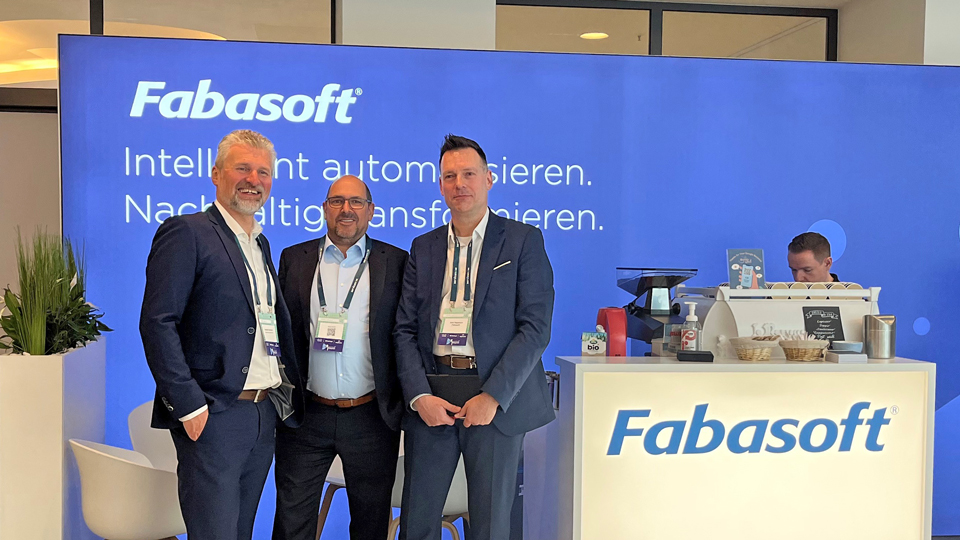Digital transformation has long since spread to the realm of contract management. And yet the differences in terms of offerings and features across contract management software products are vast, ranging from electronic filing to full-fledged cloud-based applications. But only a few contract management solutions are leveraging artificial intelligence (AI). Why is that? Is the technology still too nascent? Does AI fail to provide sufficient advantages? Quite the opposite. When trained to focus on the right aspects, AI not only accelerates digitalization, it also offers companies and users enormous added value.
Skepticism about the use of artificial intelligence is waning. Chalk that up to the successful real-world examples and the growing body of knowledge around the technology. That’s why we’ll start by looking at its ideal use in contract management.
Step 1 – Optical character recognition (OCR)
Contracts often exist in the form of scanned documents. Machine readability isn’t intrinsically provided in that format, which essentially consists of images with a collection of black, white, and colored pixels. OCR software recognizes the letters in the images and puts them together to form words and sentences. This unlocks the actual content to make it accessible to artificial intelligence.
Step 2 – Understanding and extracting content
The objective in using artificial intelligence for contract management is to recognize contractual content and leverage it for reuse in a digitized environment. This requires extensive training, during which AI learns to identify the desired contract metadata. Two aspects of contracts create a major advantage in this regard. For one thing, contract language tends to be homogeneous. Secondly, while there can be widely varying amounts of metadata, contract management only requires focusing on a manageable amount of information, such as the contracting parties, contract amounts, dates, and deadlines. This sets the stage for targeted training – which in turn makes it possible to develop ready-made models for standard software.
Step 3 – Classifying contracts
Equally important in terms of digital reuse is the type or class of contract. Artificial intelligence handles contract classification as well. The system can classify the entire document or selected sections of the document using models generated from the training examples.
Harnessing the benefits
Thanks to the use of AI, document content can now be used digitally. How do businesses and organizations benefit?
The contract archive – stop searching and start finding
One by-product of using artificial intelligence is that it makes scanned documents machine-readable. Semantic full-text searches will capture this content. That means that users can enter any search term they need, as long as it appears in the document, and can locate contracts without going down the rabbit hole of researching the name of the document, where it is stored, and so on.
Intelligent semantic full-text search also features filtering capabilities to refine searches, as well as more advanced AI to optimize the search results.
Digitalizing the contract lists more rapidly
Since artificial intelligence extracts the metadata – hence the term “metadata extraction” – users save an enormous amount of time in the digitalization process. Contract information flows automatically into digital contract files. All the while, the risk of manual input errors during highly repetitive tasks declines. The ability to identify the contract type during classification creates a clear structure for the contract archive.
Automated deadline management
If dates and deadlines are also fed into the contract management software as part of the metadata extraction process, AI will also digitize deadline management in the same step. It’s important to note in this regard that intelligent software often identifies information that isn’t explicitly stated in the contract, such as the anticipated end date.
Controlling workflows – actionable information
Information triggers action. Workflows for reviewing documents, obtaining approvals for contract amounts exceeding certain thresholds, warnings when specific clauses have been included – there are no limits to the creativity of the use cases that can be modeled to suit specific customer demands. Embedded in a powerful contract management system, artificial intelligence will automate these processes. Ideally, the contract management software has an intuitive workflow design.
Artificial intelligence in contract management puts you ahead of the competition
The top advantages of artificial intelligence are clarity and overview, time savings, reduced risk, and the ability to automate manual processes. The central requirements of contract management are homogeneous, as is the language used in contracts. That means that contract management software vendors can standardize workflows and offer pre-trained models. Instead of long-winded data science projects, companies using intelligent contract management software enjoy direct, tangible benefits and competitive advantages thanks to its immediate applicability in a diverse range of areas.
|
|




